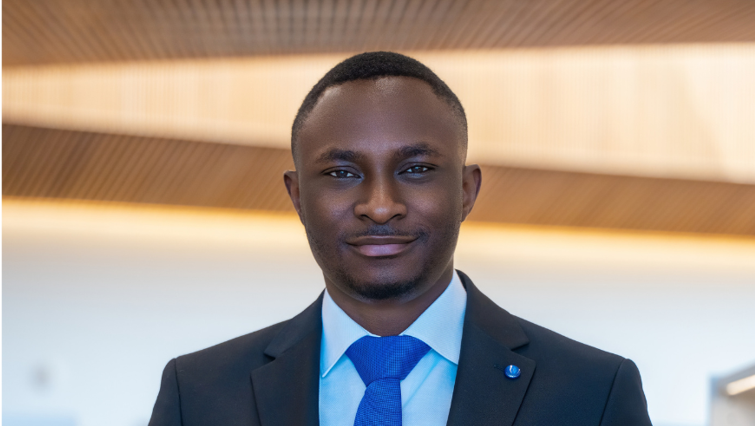Emmanuel Adigwe’s career journey has been anything but linear. Trained in computer science at Covenant University, he found himself exploring several career paths after graduation. He dabbled in computer networking, web development, and even spent some time at Computer Village in Lagos before moving into the banking sector.
But it was at the bank that he faced one of his toughest career challenges. Assigned to a marketing role straight out of training school, Adigwe quickly realised that it was not aligned with his purpose. Marketing demanded soft skills and finance-driven targets that did not match his interest in design. At the same time, he was freelancing as a graphic designer, using his spare hours to grow his skills in print and digital design. This contrast revealed where his true passion lay.
Spotting an Opportunity
The turning point came when an internal job ad appeared for a front-end developer role. Although it was not a design position, Adigwe saw an opening. He had noticed that the bank outsourced all design work, and believed an in-house design function was needed. With that insight, he took a bold step, he applied not for the advertised role but for a UX design role that did not exist.
To strengthen his case, he attached a design case study to his application, redesigning one of the bank’s internal tools he had used extensively as a marketer. He also shared his design portfolio, showing that he could deliver value even though the position had not been listed. The following day, the job board was updated with a new role: UX designer. For Adigwe, that moment was a sign that his audacity had paid off.
Building the First UX Team
Adigwe went on to join the very first UX design team at the bank. Alongside a few colleagues, he helped pioneer the department and shape how design was integrated into internal systems and customer-facing products. The experience was not without challenges, but it was a defining moment in his career.
“Being pioneers meant there was so much in front of us that we could change,” he recalled. “It led us down paths of excitement, trouble, fun, and even disaster. But looking back, I wouldn’t trade that experience because it shaped all of us.”
Eventually, all members of that founding team moved on to greater opportunities, but the lessons stayed with him.
Evolving His Approach
Today, Adigwe is a product designer based in Norway, with a decade of design experience spanning NGOs, banks, startups, and industrial data companies. He admits that his approach has evolved over time. While he still values taking initiative, he now balances audacity with risk awareness.
“I still have the drive, but I weigh risks more carefully,” he said. “Back then, I had nothing to lose. Today, I take calculated steps. But the core lesson remains…I believe I am in control of the outcomes in my life.”
One example came in his current role when he noticed an organisation-wide process that needed improvement. Though it was not his responsibility, he trained himself in the relevant skills, took ownership of the project, and successfully launched it before handing it over to the designated team.
Lessons for Others
Asked what advice he would give to people stuck in jobs they dislike, Adigwe pointed to two key principles: preparation and audacity.
“Work on yourself so you are ready when opportunities come,” he said. “Then have the audacity to go for it. If I wasn’t building my portfolio on the side, I wouldn’t have been able to seize that moment at the bank. And if I hadn’t dared to apply for a role that didn’t exist, I would have missed it entirely.”
For him, moving from Nigeria to Europe was another example of this mindset. He struggled to land opportunities directly in Europe, so he made a bold move to Rwanda, where he gained experience and improved his portfolio. From there, he successfully applied to European companies.
“Be equipped and have the audacity,” he summarised. “One without the other is not enough.”
Conclusion
Emmanuel Adigwe’s story is one of persistence, courage, and growth. From struggling to find his path after university to pioneering a design team in a Nigerian bank and eventually working internationally, he shows that careers are shaped by a mix of preparation and bold decisions. His journey demonstrates that sometimes the best opportunities are the ones we create ourselves.















